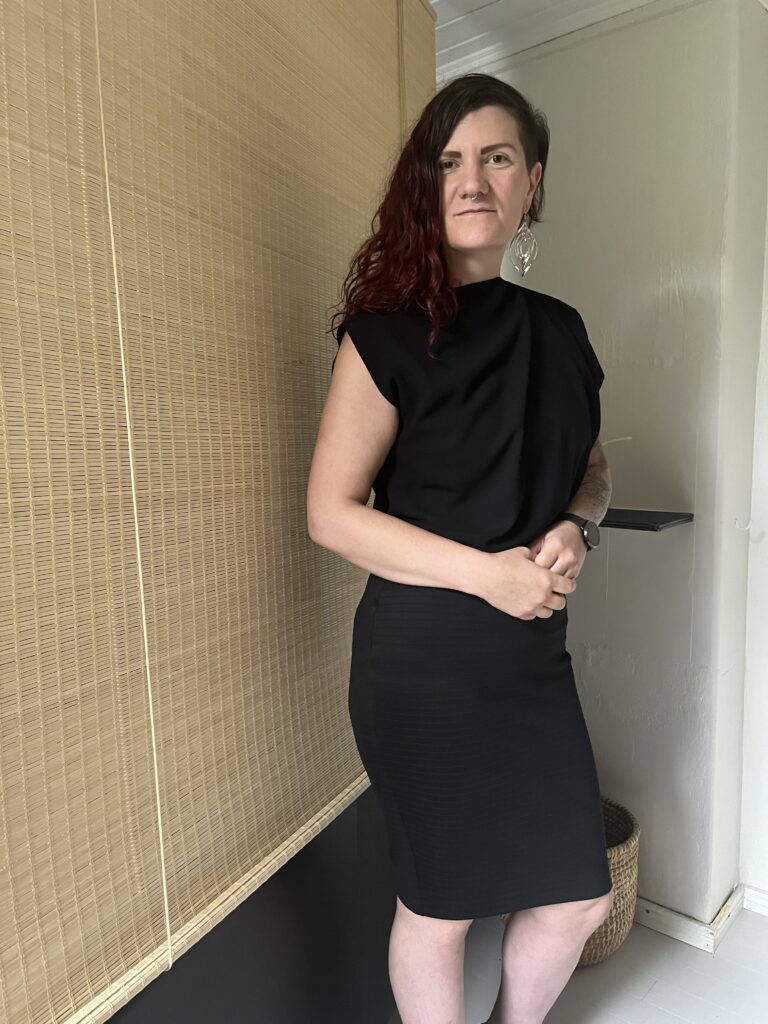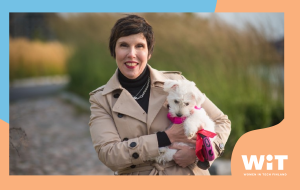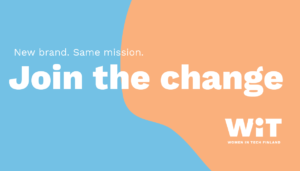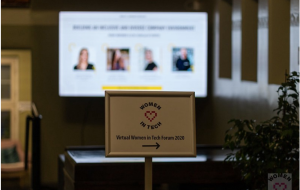I always say that I got into consulting by ‘accident’ – but to be honest, it was a very lucky accident: since the beginning, I’ve felt as if it is my very own place, for it is a great field to combine data work and decision-making.
I have been in the field of data and analytics for over fifteen years, leading several teams and units. I currently work at BearingPoint, which is a business consultancy that combines strategy and operating model consultancy with tech, data, and regulatory consulting, but also does business consultancy. I enable different types of transformation through data: currently, I work mostly with sustainability and setting up data and analytics competencies at different companies.
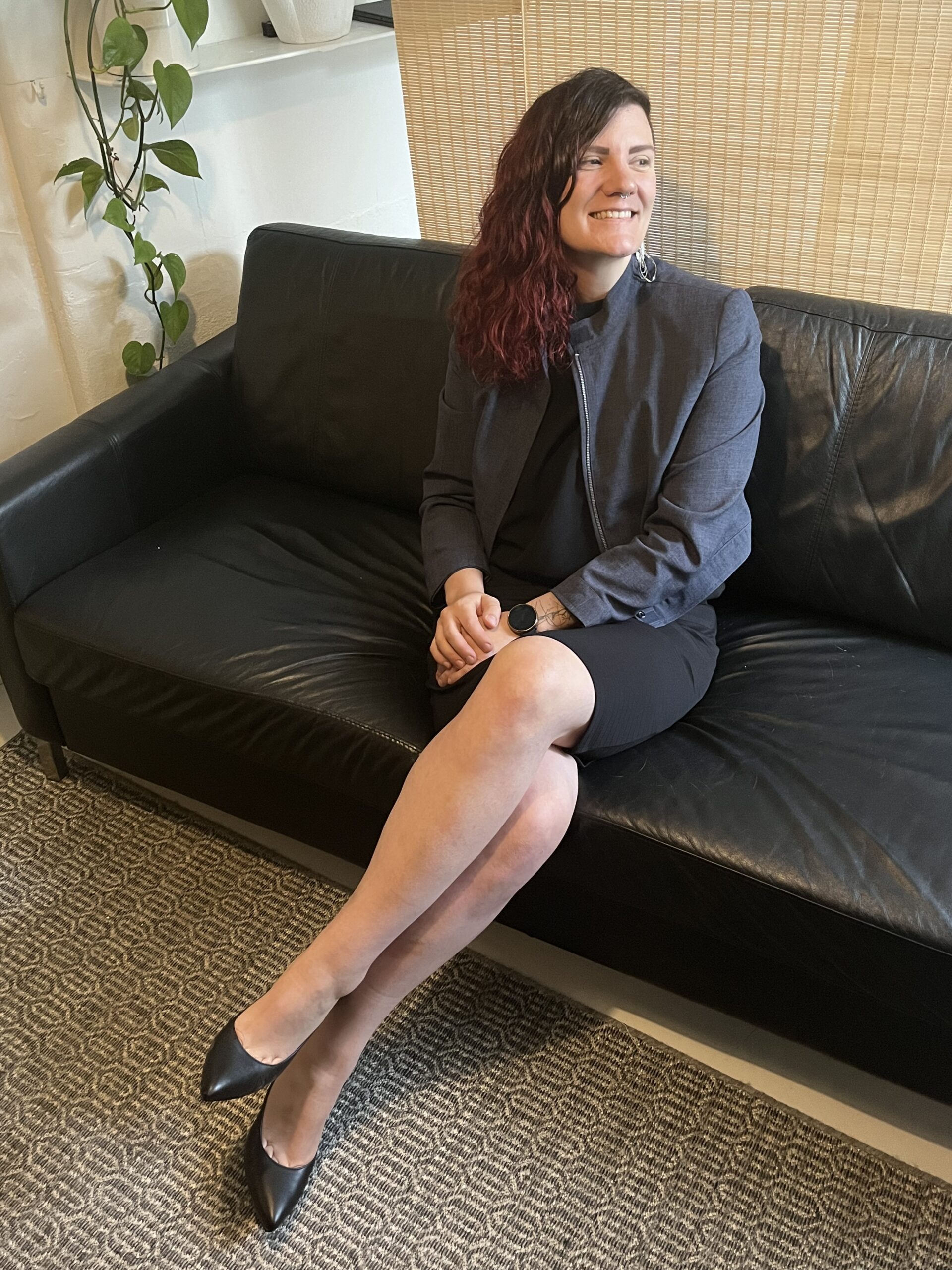
Laura Sutinen, Director / Data & Analytics, BearingPoint
A turning point: from problem-solving love to diving deep into consultancy
My academic background is in Maths; I have always really loved problem-solving. I also tend to get bored of repetition, so mathematics was for me the perfect playground: you can always move on to the next challenge with it. When I thought about Maths as a career path, more than having a concrete vision of what it could bring, I was actually more enticed by the myriad of opportunities it could open for me: you can do many things with it!
The summer after I got my MA in Maths, I had a PhD position as well, related to natural language processing. Of course, I was continuously examining the question: do I actually want to try something different? This was until I ran into a small consulting company that was looking for a modeler/consultant. I had no idea what either of those meant! – yet, I had just finished a course on Modular Theory, and although they have nothing to do with each other, I didn’t know that, so I applied for the job, got it, and right away got caught up in the deep end of the whole setup: since it was a small company, I got to do everything from the start. I was given my own responsibility and gladly, also, I was so junior I really didn’t understand how difficult the topics were. However, I quickly noticed that I was really good at it: I was good at connecting very practical problems with analytical solutions and working with people to drive actual change.
After this first experience, I went to IBM and joined their strategy consulting practice, which is very telling about my career path from that moment onwards: I’ve ever since been at the intersection of data, strategy, and new business development.
A combination of leadership and consultancy
Currently, my job is divided into three components. The first one is team leadership and coaching: having the data and analytics practice, this side of my job is about growing the competence towards what we need and what our clients need; building up the skillset that we need in many ways. I also do sales, which would be the second component, and that is a relatively significant part of my job: I talk with clients, capture their issues and try and find ways to help them. And then the third part is the consultancy bit, developing all kinds of solutions: from AI to different types of data and analytics.
I have been at BearingPoint for just under two years, and I am very comfortable here: I have a lot of freedom to take, but also to give. The targets are high and there has been plenty of support to reach them. In practice, I work a lot with enterprises’ ESG data, meaning sustainability-related competencies: how to organise their data so it drives business in a more green manner. This is maybe the aspect of my job I like the most: there’s an important place for design work, but I also have the chance to implement that design, to work hands-on with the team as well.
Encouraging women into tech
I believe that encouraging women into tech really does start much earlier than the recruitment process: clearly there’s a lot to do at that point, but the change needs to happen across life, It starts from daycare, from school, with how tech is seen since childhood and with what skills are appreciated in early education.
I also think that when we talk about diversity, we need to understand it in a more ample way: to me, diversity is different backgrounds, and genders, but also is true appreciation for different ways of thinking – this open-mindedness to get new ideas and perspectives in the field is what will enable more women to join the tech side of business.
For those junior tech women who already are in the field, my best word of encouragement would be: find a mentor to work your way through. In different stages of our careers, we always benefit from different types of coaches – then if you stumble onto a situation where your perspective is not appreciated, at least you have a wider perspective to look at things from. And another one: it’s very healthy to be open to imperfection: I couldn’t be where I am if I had always done everything perfectly. It’s important to prioritise, to accept that there are things you might not be perfect at, to learn from mistakes but also let go of them and keep learning, because: Where you use your time, is where you grow, that’s very simple.
“It’s important to prioritise, to accept that there are things you might not be perfect at, to learn from mistakes but also let go of them and keep learning, because: Where you use your time, is where you grow, that’s very simple.”
